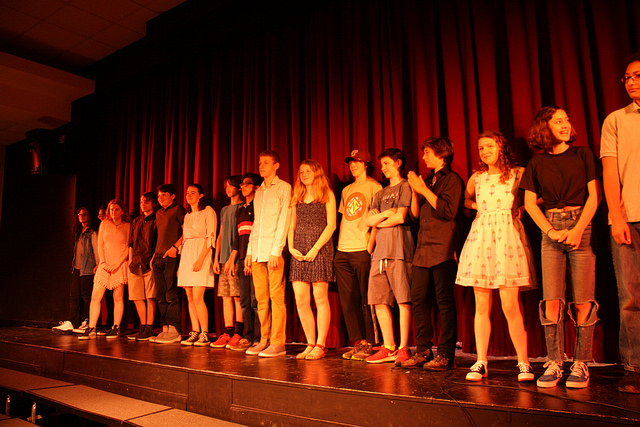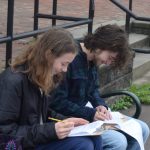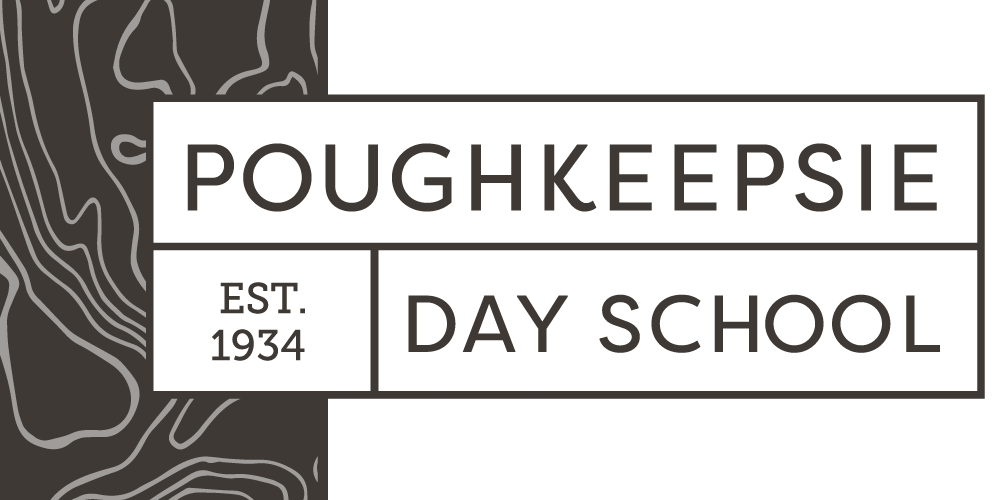
The Class of 2021 has finished its middle school years and is getting ready for high school.
On June 12, we celebrated this rite of passage at our Middle School Moving Up event. Here are my opening remarks, sending them off to high school with the progressive ideals of John Dewey firmly in mind:
Not a single one of you is here by accident. Each of your parents made a deliberate decision to send you here– a cost of convenience, time, money and perhaps even some skepticism from neighbors or relatives. Flying in the face of all that, I feel the need to point out that your parents are enlightened! Something they’ve perhaps not been given credit for.
Just how enlightened, and why I am using that particular word, takes a little history to explain. At one point in the not too distant past, your compulsory schooling– the age to which school was mandatory– would end with today’s event. The purpose of public school in the United States was to make sure we had solid citizens who understood America, as defined by those who were in power. The reason to give all citizens a free education was, in part, because the system did not necessarily trust the families that children came from, and the system had a pretty narrow definition of which languages should be spoken, how handwriting should look, and which historical and cultural narrative should be considered the truth.
With that goal in mind, certain educational methods fit the bill. When there is only one right answer, memorizing works pretty well. You’re either going to get something wrong or right, so memorizing the accepted answer will work. So, students were asked to learn lots of material by rote. When only one version of history is valued, then all the materials students came into contact with would tell only one story– and the diversity of the county would largely be lost through the pictures and words students encountered. Against the backdrop of this bureaucratic method of education, grades were invented, and lots of other school cultures that pitted students against the adults sprung up. And, in a legacy that still continues in too many educational settings today, being “good enough” is permitted to be the end of the story. Once you reach the “A,” no one asks what the next step might be in your growth. You’re just done, and the teacher pays attention to those who aren’t. Finally, arts and experiences where students might go “wayward,” couldn’t be added to a schedule. There is no way to control the right answer in these cases, so best to stay locked up inside, and, should even a little coloring be permitted, make the boundaries very clear.
Enter into this climate, at the very end of the 19th century, John Dewey. He was a philosopher, a psychologist, and educator. His understanding of learning and of what the United States needed its youngest inhabitants to learn, was markedly different from the bureaucratic norm. In three words, he believed in Interaction, Experience and Reflection. If I pause for a moment, and it should just take a moment– I would like every student, parent, teacher to think of an example, from this past year– you may only have to think back a week or less– of when PDS provided each of those three: Interaction, Experience and Reflection.
Now, why those three? Neuroscience now confirms what Dewey asserted. Learning is stronger when taught through Interaction, Experience and Reflection. But, Dewey didn’t just care about students. He also cared about society. So, in addition to this history, that I hope will lead you to sense of appreciation for your education here at PDS, I want to consider Dewey’s other motive.
Just like those in charge of the bureaucratic schools, Dewey also cared greatly for society. His ideas about education put more trust in students and in their teachers. While he very much thought that the style of education should be driven byInteraction, Experience and Reflection, it was because he was sure that this was the path to a better society. One that was safe for all people, cared for all people, and was able to maintain the highest quality of life, for the greatest number of people. He believed that this would only be possible if students were taught from the start, with the idea that they would be living and participating in a democracy as adults.
I hope you’ll think about how we planted the seeds of participating in a democracy within you this year. Of the times when we had you interact– even when you’d rather be left alone–It’s because people in a democracy have the privilege of interacting– and we need you to be among the most skilled at it. Of the times when we provided an experience for you to learn something instead of just telling you– It’s because we knew it would stick with you longer if you figured it out for yourself, or if we took you to the places where you could see for yourself. And of the times–perhaps the somewhat painful times– when we asked you to reflect. In writing, in front of a parent or teacher or me. Sometimes these reflections were when things went well, and sometime when things had gone awry. You know how to do it– and there will be much more of all this ahead of you.
We know– we all know– we didn’t take the easy way. The work you have ahead of you is just too important for us to have done that. You are well worth the time, expense, and energy we spent. We care about your future, and count on you to care about ours. So, thank you for your hard work these past years– and please make sure to remember those of us the in middle school– we want to hear how you are faring in high school and beyond.
To leave a comment on this post, please click here.



